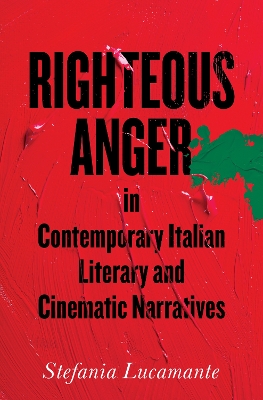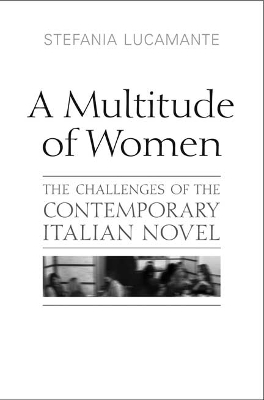Toronto Italian Studies
2 total works
Righteous Anger in Contemporary Italian Literary and Cinematic Narratives
by Stefania Lucamante
Published 20 March 2020
Righteous Anger in Contemporary Italian Literary and Cinematic Narratives analyses the role of passion – particularly indignation – and how it shapes intention and inspires the work of many contemporary Italian writers and filmmakers. Noting how art often holds the power to shed light on issues surrounding inequity, inequality, and injustice, the book explores the ethical function of art as a tool in resistance and sociopolitical protest, thereby validating the axiom that ethics and aesthetics can still collaborate in the creation of meaning. Drawing on a range of Italian novels and films and examining the works of artists such as Tiziano Scarpa, Simona Vinci, Paolo Sorrentino, and Monica Stambrini, the author shows that anger can be used constructively as a weapon of resistance against negative and oppressive forces.
A Multitude of Women looks at the ways in which both Italian literary tradition and external influences have assisted Italian women writers in rethinking the theoretical and aesthetic ties between author, text, and readership in the construction of the novel. Stefania Lucamante discusses the valuable contributions that Italian women writers have made to the contemporary novel and illustrates the relevance of the novelistic examples set by their predecessors. She addresses various discursive communities, reading works by Di Lascia, Ferrante, Vinci, and others with reference to intertextuality and the theories of Elsa Morante and Simone de Beauvoir. This study identifies a positive deviation from literary and ideological orthodoxy, a deviation that helps give meaning to the Italian novel and to transform the traditional notion of the canon in Italian literature. Lucamante argues that this is partly due to the merits of women writers and their ability to eschew obsolete patterns in narrative while favouring forms that are more attuned to the ever-changing needs of society.
She shows that contemporary novels by women authors mirror a shift from previous trends in which the need for female emancipation interfered with the actual literary and aesthetic significance of the novel. A Multitude of Women offers a new epistemology of the novel and will appeal to those interested in women's writing, readership, Italian studies, and literary studies in general.
She shows that contemporary novels by women authors mirror a shift from previous trends in which the need for female emancipation interfered with the actual literary and aesthetic significance of the novel. A Multitude of Women offers a new epistemology of the novel and will appeal to those interested in women's writing, readership, Italian studies, and literary studies in general.

